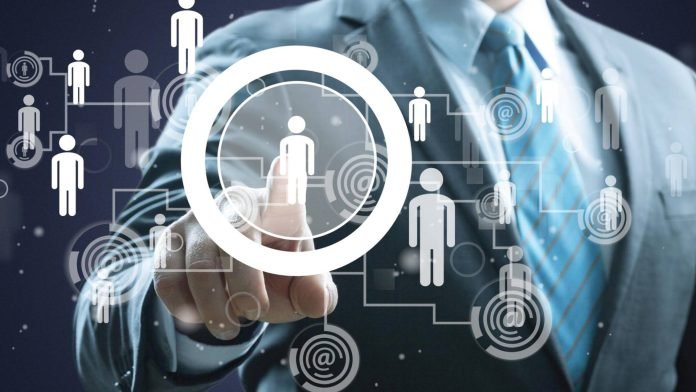2024 is set to be a pivotal year for Human Resources (HR) leaders. With world conflicts, intense political division, and the upcoming elections, employers should be reminded of the importance of supporting their employees, empowering them to effectively address these stressful changes and becoming the best version of themselves. For employees, there is an opportunity (and appetite) to improve their lifestyle and change their habits for better health and wellbeing, whether it be mentally, physically or spiritually.
Being in a workplace environment that encourages healthy habits, whether professional or personal, is critical to overall welfare. Below is some guidance on the top issues that HR leaders should prioritize in the coming year.
Productivity Starts with Holistic Health
Becoming more efficient and productive with existing resources will be a key goal for HR leaders this year, but employees can only be as productive as their health allows them. According to the CDC, healthy employees are more productive as they are less likely to call in sick or suffer from health conditions or illnesses. However, health isn’t just limited to physical; Holistic health is an important approach for HR leaders to prioritize because it includes factors, including mental, emotional, and financial wellbeing, that are just as important as physical health. For one example, mental health can impact the ability to work; a recent article by MIT Sloan Management Review found that nearly 81% of workers face some form of mental health issue and over two-thirds of employees’ daily work has been interrupted by their mental health.
In anticipation of the stress that comes with daily responsibilities and anticipated shifts this year, offering the necessary resources that enable employees to improve their holistic health is essential for their wellbeing. Share resources that support employees’ physical, emotional, financial, and spiritual wellness, and ensure that they have the right tools at their disposal to improve their health. Don’t forget to remind your employees of the available resources they have, especially as there is often a spike in physical health goals at the start of the year. Additionally, while helping employees with holistic wellbeing, remember that their family members’ health and wellbeing are equally critical for their productivity and happiness. Be intentional in supporting them with the right tools and incentives.
Ensure Employees Feel Included
It is important to ensure that employees feel appreciated and included in their workplace environment, no matter their race, religion, socioeconomic background, or gender. Company culture issues rose to prominence a few years ago when Diversity, Equity, and Inclusion (DEI) became a major topic in response to the growing attention on social movements. However, a report from DDI, a global leadership consulting firm, found that DEI programs have decreased by 33% since 2020 as businesses focus on other strategic priorities, including rising costs due to inflation, emerging technologies, and labor shortages.
Despite this decline, DEI initiatives remain important organizational goals to uphold, and HR should continue its emphasis on inclusion and equity. Employees are increasingly looking for positions that align with their values and goals. Creating a workspace that meets these expectations can foster a culture of trust and safety, helping attract top talent and encouraging employee retention. Implementing programs that support a diverse workforce can ensure all employees feel seen and heard, leading to an overall increase in workplace satisfaction and productivity as well as appreciation for their organization.
Communication is the Key
HR professionals should engage in consistent communication and aim to keep employees aware of the resources at their disposal to help them and their families. Employees are increasingly interested in the availability of not only traditional employee assistance programs (EAPs) but also modern mental wellness resources. The amount of effort a company pours into a comprehensive health benefits package reflects the company culture at large and its dedication to its employees and their families.
Hybrid work has become the norm, and remote employees may not feel as connected to their workplace as those who work in the office. Remote employees must be equally informed; they are also a key part of your company. Leveraging digital channels – such as texts, emails, apps and webinars – to communicate with employees, regardless of their location, ensures everyone is aware of the benefits offered to them and their families. This leads to improved company morale and increased retention.
Consider Emerging Technologies
Digital tools are a huge part of every organization, but HR applications and benefits resources are often siloed and segmented, making it challenging for employees to find their benefits when they need them. Building a one-stop, digital ecosystem that can offer support to all employees and their families can make a huge difference in employees’ lives.
Right now, it’s critical to leverage technology to expand access to health and wellness and benefits programs. These tools can also empower HR leaders to assess how employees are engaging in their benefits and maximize the ROI on the programming they provide to their people. Also, every industry is exploring how generative AI will impact their organization and its productivity. Thinking strategically about your technology now enables employers to be ahead of the curve, priming them to adopt emerging AI-powered HR tools as they become available.
Support Your Staff
HR provides an abundance of resources to improve employee health and wellbeing, but they simply may not be aware of them. Your HR staff will remain challenged to do more with less. Adopting innovative tools that help them improve communications as well as promote company culture and embrace holistic health will improve employees’ personal and professional lives while reducing your staff burnout. This will lead to improvements to your population’s health and workplace satisfaction and, in turn, positively impact your company’s bottom line.













